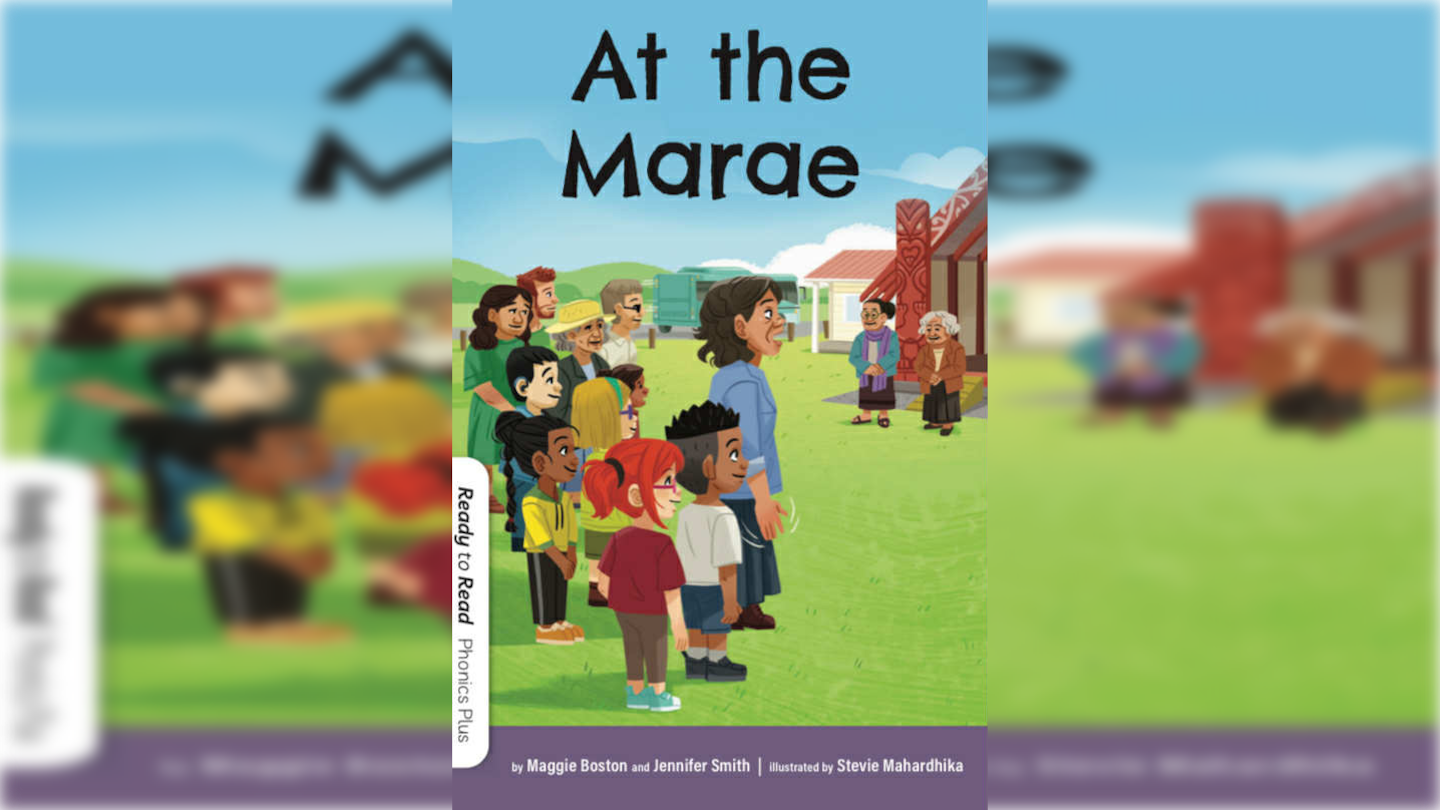Education Minister Erica Stanford has doubled down on the Ministry of Education’s decision to stop printing the small student reader version of At the Marae, saying it contained too many reo Māori words for its level, and taking a swipe at media for ignoring what she calls ‘good news’ stories about Māori language resources.
The decision has been condemned by education leaders and linguists as “racist and ideological,” and has been accused the Ministry of undermining te reo Māori in schools.
The reader, At the Marae, includes kupu such as marae, karanga, kai, karakia, wharenui, koro, hongi, and the character name Tāne.

Stanford said the book was one of more than 70 early student readers designed for children in their first year of school to support structured literacy in English, and says some of those include reo Māori words.
“These are books that are designed with a certain scope and sequence of words to help children learn to read English, and when you put too many words in that aren’t in that scope and sequence, it becomes difficult for them,” Stanford told media.
She said the Ministry decided to reprint At the Marae as a large “big book” for teachers to read aloud in class, rather than remove it altogether.
Stanford rejected claims the decision amounted to an attack on te reo Māori, pointing to her role in introducing Rangaranga Reo ā-Tā, a new set of structured literacy books entirely in te reo Māori released earlier this year.
“For the first time in this country’s history, we printed… structured literacy books in te reo Māori, no English words in that one. I was extraordinarily proud of it. I invited all of the media to come when I launched them at a school. And none of you came. Not one of you, not one of you,” she said.
“And yet here you are talking to me about one particular book… I think you all need to ask yourselves why you don’t turn up to the good news stories.”
The event Stanford is referring to was at Kerikeri Primary School on the 4th of February this year, a notably busy time for media in Te Tai Tokerau around Waitangi Day events.
Labour’s Education spokesperson Willow-Jean Prime said Stanford was using unrelated achievements to deflect from a decision that had drawn huge criticism from Māori and literacy experts.

“Nobody can really argue that cutting a book that only has six Māori words in it, regardless of whatever else might be used as the excuse, there is no excuse for cutting that particular book as a reader,” Prime said.
She accused the Government of a wider pattern of undermining te reo Māori, citing the $30 million cut from Te Ahu o te Reo Māori teacher training, the removal of Resource Teachers Māori, and now the discontinuation of the At the Marae student reader.
“The rationale given for cutting this reader is not supported by the experts in literacy,” she said. “The evidence doesn’t support what they are saying. There are no problems with those words, and they are shocked by the decision.”
Prime said media attendance at ministerial launches was irrelevant to the controversy. “Instead of deflecting and blaming others, [the minister] should take responsibility for what has been decided here.”




